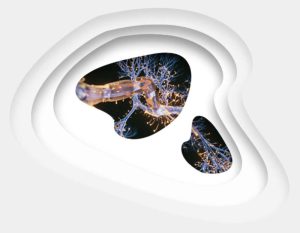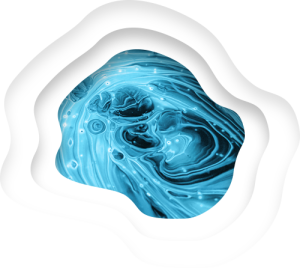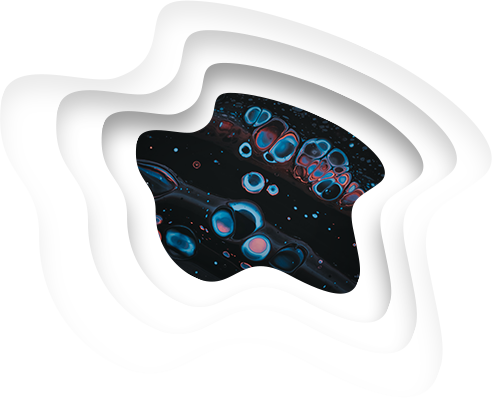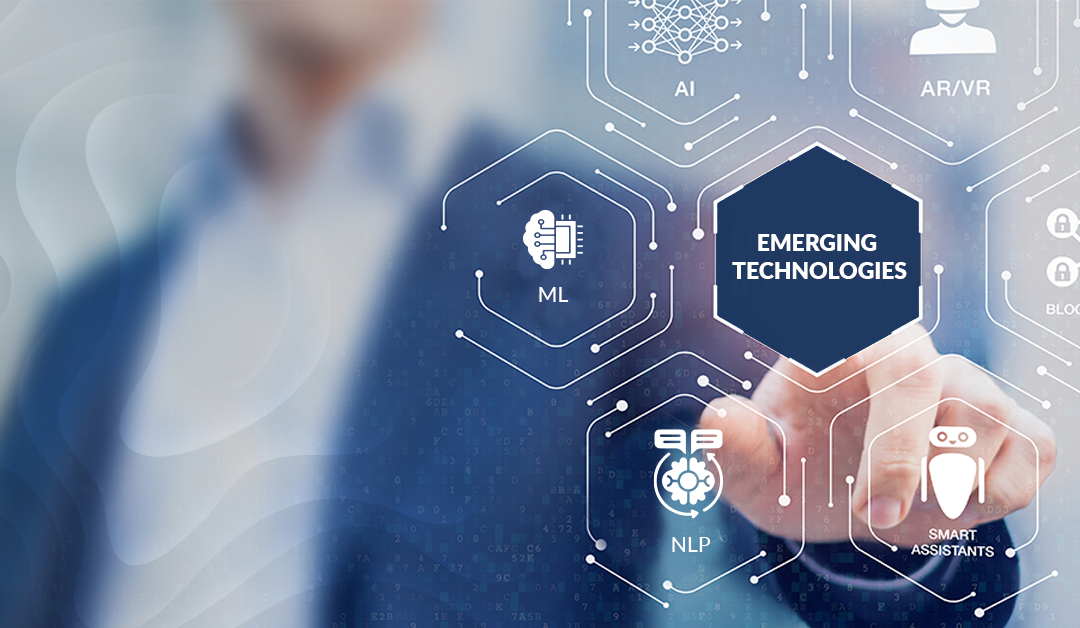Emerging technologies such as artificial intelligence (AI), blockchain, augmented reality (AR), virtual reality (VR), and natural language processing (NLP) are revolutionizing the way clinical knowledge is conveyed to healthcare providers (HCPs) and improving HCP–patient communication. With AI-powered tools and data analytics, medical science liaisons (MSLs) can personalize their interactions with HCPs, tailoring the information to meet their specific needs and preferences. For HCP–patient communication, technology bridges gaps in understanding. Access to easily understandable AI-driven health information can empower patients to make informed decisions about their care. AI chatbots also boost patient adherence and engagement. Telemedicine platforms with integrated NLP enable remote consultations, making healthcare more accessible. Integrating these technologies into healthcare interactions can lead to a future of precision medicine, improved patient outcomes, and a more connected healthcare ecosystem. However, it is crucial to address the ethical considerations, challenges, and limitations of these technologies before they are introduced and widely used in the broader healthcare arena.
AI-powered information impact
Like other fields, AI is now in the healthcare communication spotlight. AI-enabled machine learning algorithms process vast amounts of clinical data at the speed of light, making it easier for medical professionals to access relevant information quickly. Medical search engines, chatbots, and virtual assistants help HCPs stay up to date with the latest research, drug information, and treatment guidelines.
Additionally, AI-driven diagnostic tools assist HCPs in making accurate and timely diagnoses, resulting in reduced errors and enhanced patient care. This technology is particularly valuable in telemedicine, where HCPs may not have immediate access to traditional resources. Some examples of commonly used AI tools include:
AI-driven diagnostic tools
- UpToDate: A widely used medical search engine and reference tool that provides HCPs with the latest research, drug information, and treatment guidelines.
- IBM Watson for Drug Discovery: Utilizes AI to assist HCPs in staying current with drug-related research and information, aiding in drug discovery and development.
- HealthTap: A chatbot and virtual assistant that offers HCPs access to a vast database of medical knowledge, enabling HCPs to stay informed about the latest medical research and guidelines.
- Infermedica: Provides a range of AI-driven chatbots and virtual assistants that assist HCPs in diagnosing and recommending treatments based on the latest medical research and guidelines.
AI chatbots/voice assistants are also useful tools for patients. These conversational AI tools help patients access accurate medical information 24/7 by directing them to the FAQ web pages on a doctor’s website or trusted and relevant data sources such as the CDC or FDA websites, etc. These AI tools offer advice on symptoms and medication and can schedule appointments for patients after hours. This automation of repetitive administrative tasks, basic diagnoses, immediate guidance, and advice for non-urgent cases helps with a significant reduction in patient inquiries routed to medical staff, freeing up valuable time for doctors and nurses to focus on complex and critical cases. However, it is important to consider some of the drawbacks of this technology.
Ethical considerations and limitations of AI
- Bias: AI algorithms can perpetuate biases present in the data they are trained on. This can lead to unfair or inaccurate results, particularly for underrepresented groups with sparse healthcare data.
- Transparency: The inner workings of complex AI algorithms can be opaque, making it difficult to understand how they arrive at specific conclusions. This lack of transparency can raise concerns about accountability and trust.
- Data security: This is another concern, and patients and HCPs are wary of inadvertently sharing private information or running afoul of compliance rules.
NLP for clinical text
Natural Language Processing (NLP) enables computers to understand and generate human language. In the healthcare sector, NLP is a game-changer. It can extract valuable insights from unstructured clinical text, such as medical records and research papers. For instance, by analyzing patient notes, NLP can identify trends and patterns, helping HCPs make informed decisions and improve patient outcomes. NLP can also enhance clinical research, allowing HCPs to quickly extract relevant information from a vast sea of medical literature.
Additionally, NLP-driven chatbots are transforming patient interactions. These bots can engage with patients in real time, answering questions and providing guidance. This enhances patient education and compliance, helping to improve overall healthcare outcomes. Nonetheless, it’s necessary to acknowledge some potential drawbacks of NLP.
Ethical considerations and limitations of NLP
- Privacy: Extracting data from medical records raises privacy concerns.
- Accuracy: NLP models are not perfect and may misinterpret nuances in human language.
AR and VR for immersive experiences
Augmented reality (AR) and virtual reality (VR) are reshaping medical education and training. Medical professionals can use AR and VR simulations to practice surgeries, hone their diagnostic skills, and explore 3D anatomical models. This immersive experience enhances their competence and confidence, ultimately benefiting patient care.
Furthermore, AR has applications in patient education. It can overlay information onto the patient’s view, helping them better understand their condition, treatment options, and recovery processes. VR can transport patients to calming environments during stressful procedures, reducing anxiety and pain perception. However, it’s essential to bear in mind certain limitations associated with this technology.
Challenges and limitations of AR/VR:
- Cost: AR/VR technology can be expensive, limiting accessibility for some healthcare institutions and individuals.
- Motion sickness: VR experiences can induce motion sickness in some users, which can hinder its effectiveness in training and patient care.
- Limited content: The development of high-quality AR/VR content for medical applications is still evolving.
Blockchain technology for data security
Blockchain technology is a way of enhancing the security and integrity of healthcare data. Electronic health records (EHRs) stored on blockchain are tamper-resistant, ensuring patient privacy and data accuracy. Patients can have greater control over their health information, granting access to HCPs as needed. Blockchain streamlines data sharing and ensures transparency, security, and efficiency in drug development and clinical trials through its inherent characteristics, bolstering trust and accountability with:
- Immutable and secure ledgers: Blockchain records are tamper-resistant, ensuring data integrity. In clinical trials, this prevents unauthorized alterations, protecting the reliability of trial data.
- Transparency and traceability: Blockchain provides a transparent, auditable record of data sharing and transactions. Every change is visible, enhancing accountability in drug development.
- Decentralized network: Eliminating centralized control, blockchain enables secure and direct data sharing among stakeholders, reducing delays and enhancing collaboration.
- Smart contracts: These self-executing contracts automate and enforce trial protocols, ensuring compliance and reducing errors in data collection and reporting.
- Data privacy: Blockchain’s encryption and permission-based access protect patient privacy, critical in clinical trials and beyond.
This technology fosters trust among stakeholders and expedites the delivery of new treatments to patients. Nevertheless, it’s crucial to take into account some of the downsides of blockchain technology.
Challenges and limitations of blockchain
- Scalability: Blockchain technology is still evolving, and its scalability for managing massive amounts of healthcare data is being tested.
- Energy consumption: Verifying transactions on a blockchain network can require significant computing power, leading to high energy consumption.
- Regulation: The legal and regulatory landscape surrounding blockchain technology in healthcare is still developing. Clear guidelines are needed to ensure its responsible use and integration with existing healthcare systems.
Overall, despite the ethical considerations, challenges, and limitations, the potential benefits of emerging technologies in healthcare communication are undeniable. By acknowledging these limitations and working toward solutions, we can harness the power of these technologies to create a more informed, efficient, and secure healthcare system for all.
The road ahead with future directions and possible solutions
Emerging technologies have come a long way, but they still have a long road ahead. Before healthcare truly integrates these technologies into drug development, clinical trials, education, and diagnoses, certain considerations and possible solutions to the limitations and challenges listed above must be taken into account.
AI
- Bias: Implementing diverse and representative datasets for training AI algorithms can mitigate bias.
- Transparency: Developing explainable AI models and ensuring transparency in decision-making processes can enhance accountability and trust.
- Data security: Employing robust encryption techniques and strict data access controls can safeguard patient privacy and compliance with regulations.
NLP
- Privacy: Implementing strong and robust anonymization protocols and data security safeguards can protect patient confidentiality.
- Accuracy: Continuous validation and refinement of NLP models and outputs, along with human oversight, can improve accuracy and reliability in healthcare decisions.
AR/VR
- Cost: Investing in scalable and cost-effective AR/VR solutions, along with exploring interdisciplinary collaboration and partnerships as well as funding opportunities, can improve accessibility.
- Motion sickness: Conducting user studies and optimizing VR experiences to minimize motion sickness can enhance user acceptance and effectiveness.
- Limited content: Encouraging collaboration among developers, educators, and HCPs can facilitate the creation of diverse and high-quality AR/VR content for medical applications.
Blockchain
- Scalability: Researching and implementing scalable blockchain solutions, such as sharding or layer-two protocols, can address scalability challenges.
- Energy consumption: Exploring energy-efficient consensus mechanisms and sustainable blockchain infrastructure can mitigate environmental impacts.
- Regulation: Collaborating with policymakers and regulatory bodies to establish clear guidelines and standards for blockchain implementation in healthcare can ensure responsible usage and compliance.
All in all, although continued research and development is necessary to refine these technologies, address limitations, and ensure their effectiveness in real-world healthcare settings, these technologies have been shown to streamline processes, enhance communication, and facilitate personalized care, leading to better patient outcomes. These solutions can pave the way for a future where technology empowers HCPs and patients, fostering a more connected, informed, and secure healthcare ecosystem. Embracing these innovations is not just an option but a necessity for biopharma, HCPs, and organizations looking to thrive in the digital age.
Explore the future with us
As a strategic pharma partner agency specializing in medical communication solutions, Cactus Life Sciences can help you navigate the exciting world of emerging technologies. We offer services in medical communication, modular content creation, AI integration, and developing efficient content for physicians and patients. Our expertise can guide you through an integrated medical communications plan throughout the drug development journey. We invite you to contact us for a consultation on how we can help you leverage the power of emerging technologies to advance your healthcare communication goals.
About the author

Kwisha Shah
Kwisha Shah is Marketing Content Manager, Thought Leadership, at Cactus Life Sciences.













